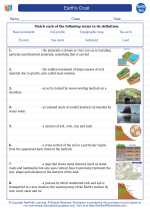Pharmaceuticals: An Overview
Pharmaceuticals are substances used for the prevention, diagnosis, and treatment of diseases. They can be synthetic or naturally derived, and are often developed through extensive research and testing. The pharmaceutical industry plays a critical role in healthcare by producing a wide range of medications that help improve and save lives.
Types of Pharmaceuticals
There are several types of pharmaceuticals, including:
- Prescription Drugs: These medications are only available with a doctor's prescription and are typically used to treat specific medical conditions.
- Over-the-Counter (OTC) Drugs: These medications can be purchased without a prescription and are used to alleviate common ailments such as headaches, colds, and allergies.
- Generic Drugs: Generic versions of brand-name medications that contain the same active ingredients and are typically more affordable.
- Biopharmaceuticals: These drugs are produced using biotechnology and are often used to treat complex diseases such as cancer and autoimmune disorders.
Pharmaceutical Development Process
The development of pharmaceuticals involves several stages, including:
- Research and Discovery: Scientists identify potential drug targets and conduct research to find compounds that could become new medications.
- Preclinical Testing: In this stage, potential drug candidates are tested in laboratory and animal studies to assess their safety and effectiveness.
- Clinical Trials: If a drug candidate shows promise in preclinical testing, it progresses to clinical trials, which involve testing the drug in human subjects to determine its safety and efficacy.
- Regulatory Approval: Once clinical trials are successful, the pharmaceutical company submits an application to regulatory agencies such as the FDA for approval to market the drug.
- Production and Marketing: Upon approval, the pharmaceutical is manufactured on a larger scale and marketed to healthcare providers and patients.
Challenges and Ethical Considerations
The pharmaceutical industry faces various challenges, including the high cost and time investment required for drug development, as well as ethical considerations related to patient safety, access to medications, and the marketing of pharmaceuticals.
Study Guide
When studying pharmaceuticals, it is important to understand the following key concepts:
- The role of pharmaceuticals in healthcare and disease management
- The different types of pharmaceuticals and their uses
- The stages of pharmaceutical development and regulatory approval process
- The ethical considerations and challenges faced by the pharmaceutical industry
Additionally, it is helpful to explore specific examples of important pharmaceuticals, breakthroughs in drug development, and the impact of pharmaceuticals on public health.
.◂Earth Science Worksheets and Study Guides High School. Earth's Crust

 Worksheet/Answer key
Worksheet/Answer key
 Worksheet/Answer key
Worksheet/Answer key
 Vocabulary/Answer key
Vocabulary/Answer key
 Vocabulary/Answer key
Vocabulary/Answer key
 Vocabulary/Answer key
Vocabulary/Answer key
